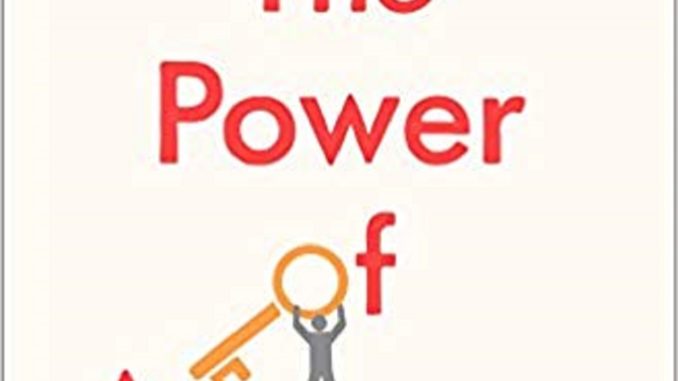
Agency might seem, to some, as another of those buzzwords in the world of social sciences and human psychology with an open-ended meaning. Paul Napper and Anthony Rao’s book The Power of Agency: The 7 Principles to Conquer Obstacles, Make Effective Decision, and Create a Life on Your Own Terms disabuses us of that idea. In Rao and Napper’s definition, agency has concrete meaning that resists creative interpretation and, instead, provides readers with an invaluable concept towards understanding our motivations. The seven principles they explore in the book for establishing agency over our lives are easy to comprehend though, by their own admission, not quite as simple to practice from the outset in a consistent and uniform way.
ABOUT THE AUTHORS: www.powerofagency.com/tony–paul.html
Agency, as defined by the authors, refers to our ability to stop, appraise a situation, and act accordingly. Its presence or absence of is felt in each corner of our lives. The lack of agency puts us into a reactive rather than deliberative state – instead of affording ourselves the chance to analyze and address issues, we are provoked to action by them and our responses often reflect the emotional havoc such moments give birth to rather than exhibiting the traits of reasoned evaluation. The loss of agency further complicates already complex connections in the personal and professional arenas.
Their proposed solution to these issues is structured around seven principles they group under behavioral and cognitive labels. They advise us to form relationships with people who live healthy lives, become more physically active in our everyday lives, and cut down on distractions like cell phones and other gizmos. The cognitive side of ledger argues we should focus on expanding our knowledge, relying more on our innate gifts of intuition, becoming more self-aware, and examining situations before we act. Rao and Napper stress that we don’t need to apply these principles all at once – in essence, we did not get into this position overnight, and progress rather than perfection is our pre-eminent goal.
This measured approach to the subject is reflected in the book’s structure and their even-handed way of dealing with the reader. The writers never begrudge their readers about the need for this book in their lives – they have enormous sympathy for the predicaments of modern life and are focused on helping us throughout the text. I felt comfortable throughout reading this book and never lost confidence in their shared authorial voice – they are pointing towards a way out for individuals without ever making the reader feel ashamed or dispirited they have found themselves in this position to begin with.
AMAZON: www.amazon.com/Power-Agency-Principles-Obstacles-Effective-ebook/dp/B07F1BV4BF
The Power of Agency: The 7 Principles to Conquer Obstacles, Make Effective Decision, and Create a Life on Your Own Terms is different in this respect from many self-help books. The emotional investment its authors have placed in their ideas is real and felt throughout the work without ever slipping into pat answers or sentimentality. I appreciate their efforts and the honesty of their approach. It is a book you will be able to return to long after your initial reading and find something new in its pages.
Clay Burton
